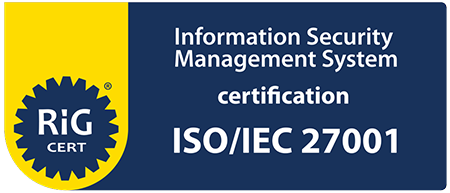Providing regular, timely, and constructive feedback throughout the work process is an integral part of an effective and sustainable corporate culture and a good collaboration within any team. However, to be effective when giving it, we need to consider exactly how we deliver our message to our employees.
It is common today that members of the same team are representatives of different generations. This, in turn, requires different approaches from the manager in the feedback giving so that they ultimately achieve their final goal - to empower each team member, develop their potential and motivate them to do their best at work.
That's why we've decided to share with you some basic guidelines on how to provide adequate and effective feedback to your employees based on the generation they belong to.
Baby Boomers (1946-1964) seek public recognition for the job well done and like to receive it from their managers and peers. Strive to provide them with reasoned feedback, supported by numbers and documentation. Baby boomers don't like conflicts and value personal growth. Therefore, any constructive feedback should be approached as a growth opportunity. Without regular feedback, baby boomers will look for and interpret behavioral signs (usually negatively), especially if they're not getting any individualized development input. Remember that retirement and financial security are paramount for people in this age group, so you should include acknowledgment of their efforts in planning, strategizing, and reaching goals in the feedback process. Listen to the employees from this generation, as they have both a reasoned opinion and enough experience to back it up. Learn from boomers because their feedback can be invaluable to your business.
Gen X-ers (1965-1980) are motivated by how their actions contribute to the success of the organization they work in. Therefore, feedback should include how their individual progress impacts the company and its achievements. Gen-Xers also desire ongoing recognition from their boss because of their experience and competitiveness. This is the first generation that proactively asks for feedback, although its representatives tend to do it cautiously not to sound too pushy. A desire for continuous improvement and learning is their hallmark, so you can present your feedback in a way that offers them opportunities for growth and development. Devoid of feedback, gen-Xers will start looking for other options, either inside or outside the organization, because they have reached the point in their career where they are ready and determined to be demanding. Therefore, be prepared for pushback or negotiation when assigning new responsibilities. They are used to having plenty of choices, so structure your feedback sessions and offer different options. Adapt your feedback so that it includes attractive incentives. Discuss different options that might appeal to them, such as a flexible schedule, which could motivate them more than a raise. Bring big questions to the feedback session, such as long-term goals, security, and late-stage career growth. Offer additional training if you feel - or more importantly, if they feel - that they are not able to reach their full potential. Don't wait and reward their positive performance instantly.
Millennials, or Generation Y (1981-2000), live in a world of social networking where feedback is a part of everyday life. Millennials crave positive reinforcement and seek to validate their value to the organization more than any other generation. Millennials cherish continuous feedback on their performance and want to make sure their managers appreciate and approve of their work for the company. To address these needs, provide daily acknowledgment of their contributions or redirect them if they need to do something different. Don't put off feedback until the next scheduled meeting. Be specific and get to the point of the conversation quickly. Use millennials' impatience to your advantage by setting goals and deliverables that can be achieved promptly. To reach them, you can also use the means or channels of communication that they recognize as relevant and effective, namely e-mails, text messages, video chats, etc. Garnish your feedback with humor or irony if appropriate because they will appreciate it.
Generation Z (2001-2021) is the newest age group currently entering the workforce. The representatives of this generation have a lot to offer, and their older colleagues have a lot to learn about working with them. They are more likely to be candid and challenge their supervisors without necessarily perceiving it as a sign of disrespect. They are confident, hard-working employees who are more assertive and demanding than previous generations. Despite being glued to their mobile devices, this group actively communicates online, so it's crucial to know how to give them your feedback. A survey reveals that 60% of Gen Z workers want multiple check-ins or brief conversations with their manager within a week, and 40% want them daily. Fortunately, this age group loves digital communication, so check-ins don't need to happen in person or take a long time. Generation Z is looking for immediate feedback, whether good or bad, so be ready to provide it on the spur of the moment. As a manager, you'll also greatly benefit from active listening to make sure that the Gen Z employee truly understands the feedback you're giving them. Be sure that any sort of disciplinary feedback includes mention of the employee's positive contributions.




